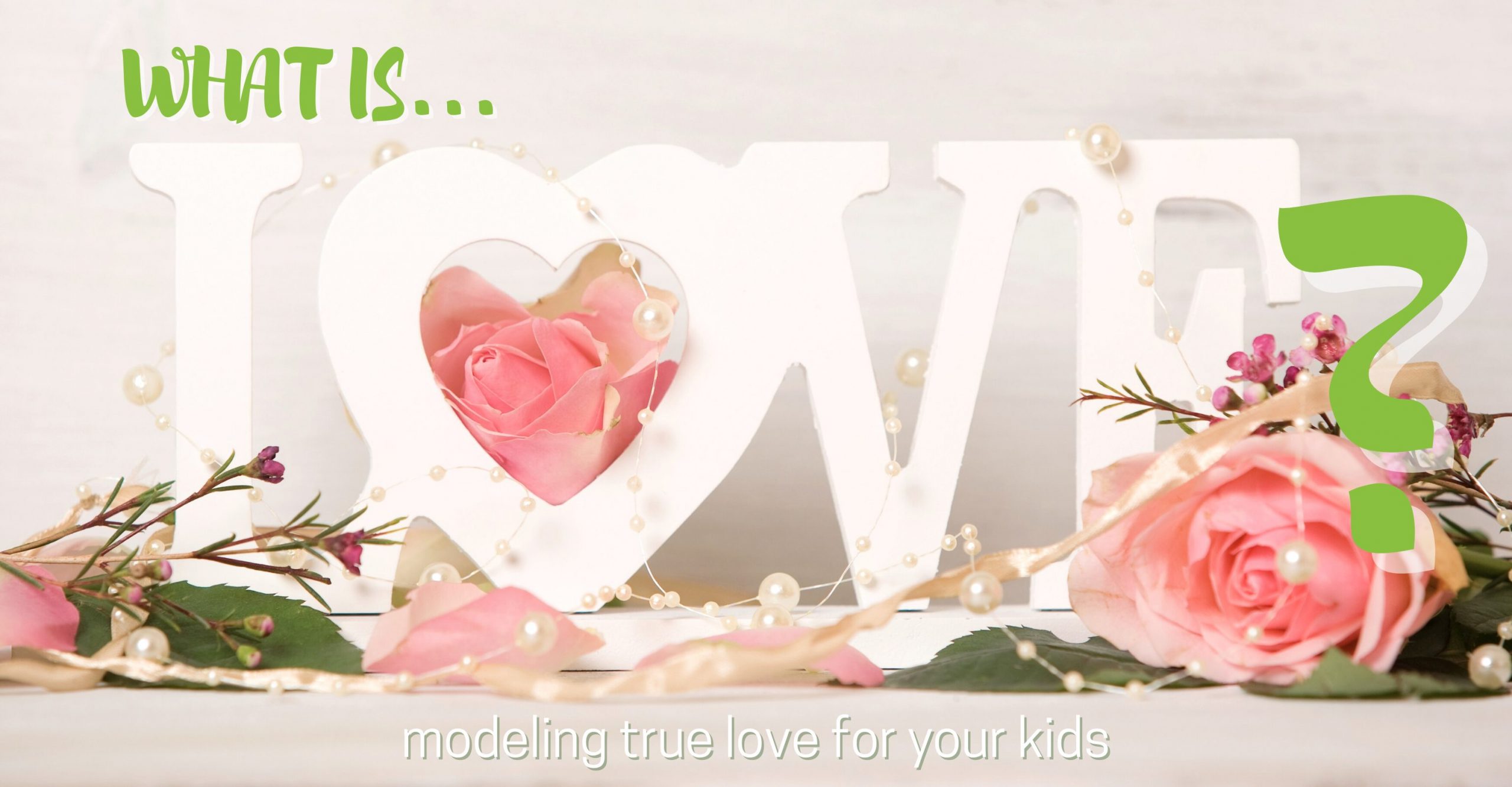What is Love?
Modeling true love for your kids.
Love…it’s a word we throw around a ton, but have a hard time defining. We might say we’re “in-love” with someone, but what is that all about? When we use the same word to describe our feelings about pizza or our favorite movie, what does it really mean to love another person, especially in a romantic relationship?
As new or expectant parents, we need to remember that our relationships with adults affect our relationships with our kids. Michael Einev suggests in research published in The Journal of Psychology that the quality of marital relationships between parents influences the expectations their children have about their own future intimate relationships. The ways we show love in every area of our lives become our kids’ working definitions of what love is and how human beings should be treated.
A dictionary definition might not be the best way to figure this out, so let’s talk about what true love looks like and what it doesn’t look like. There are so many ways to show someone you love them, but we’ll discuss some major defining characteristics that set love apart from just a crush or infatuation.

Real love…
- Respects. You can’t have love without respect. Respect means to hold esteem for a person, to recognize their priceless value and act on that. This includes speaking kindly, honoring each other’s boundaries, and listening well.
- Is loyal. Love looks like standing up for somebody else, not going behind their back. Loyalty is like respecting another person even when they’re not present. In a romantic relationship, this means staying true to each other and saying no to other romantic interests.
- Cares about others’ needs. When we love another person, we do what we can to help them be healthy emotionally, physically, mentally, financially, socially, and spiritually. Love means thinking beyond our own desires and preferences to meet another’s needs.
- Grows with time. Feelings fade, but love lasts. It’s a choice. We can choose to love someone every day, even when we aren’t necessarily happy or feeling out-of-this-world-in-love. As we keep choosing that person, we can get better and better at loving them.
- Has boundaries. This may sound restrictive, but one of the most loving things we could do for another person is to set ground rules together for the relationship. Boundaries are limits we make for ourselves that tell us what is healthy or unhealthy. For instance, having physical boundaries: what kind of touch is appropriate for this relationship, or what activities should be saved for when this relationship is more committed? Or emotional boundaries: what is appropriate to say to each other? How much time should we be spending together?

This all might sound pretty straight forward, but our culture confuses us with all kinds of unhealthy misconceptions about love. Let’s tackle the characteristics of infatuation, or “fake love.”
Fake love…
- Obsesses or possesses. It might feel like love if you can’t stop thinking about that person, or hate to see them with someone else, but this is actually toxic. If one or both parties tries to control the other’s schedule, behavior, body, or anything else that belongs to them, this is manipulation, a warning sign of abuse.
- Revolves around physical attraction. Though being attracted to someone physically can be an important part of a romantic relationship, that should never be the primary focus or reason those two people are together. Physical attraction will come and go. A relationship can’t stand on that alone, there must be a deeper attraction that values the person as a whole, not for their body.
- Feels unsure or unsafe. If either party is scared or intimidated of the other, that’s another red flag for abuse. Both people should feel safe physically and emotionally. Love never uses power to get what it wants.
- Moves fast. Fast and furious relationships often end as dramatically as they begin. When a couple can’t keep their hands off each other, or start throwing around plans to get married or move in together early on, they’re selling their relationship short. Real love leaves room for the relationship to grow before getting serious and doesn’t put someone else at physical or emotional risk because of impatience.
- Wants what feels good. If we act on every impulse we have, we put ourselves and others in danger. Just because something feels pleasurable or exciting, doesn’t mean it’s healthy. Love means looking beyond the moment to what is best for the health of both people.

Love is action.
Remember, how we treat others and how we let others treat us speaks volumes to our children. It tells our sons and daughters what they should expect from their own relationships. Let’s all take some time to look for real love in our lives, and expel any fake love. We owe it to our kids, friends, family, partners, and ourselves.
Want to learn more about healthy parenting? Check out Lifeline’s other blog posts to get more info on issues relevant to parents and expectant parents. You can also make an appointment to get in-person education and earn baby supplies at no cost to you: contact us today to learn more.
By Kath Crane
Resources:
https://www.tandfonline.com/doi/full/10.1080/00223980.2013.805116#.VDAw1_ldWbM

